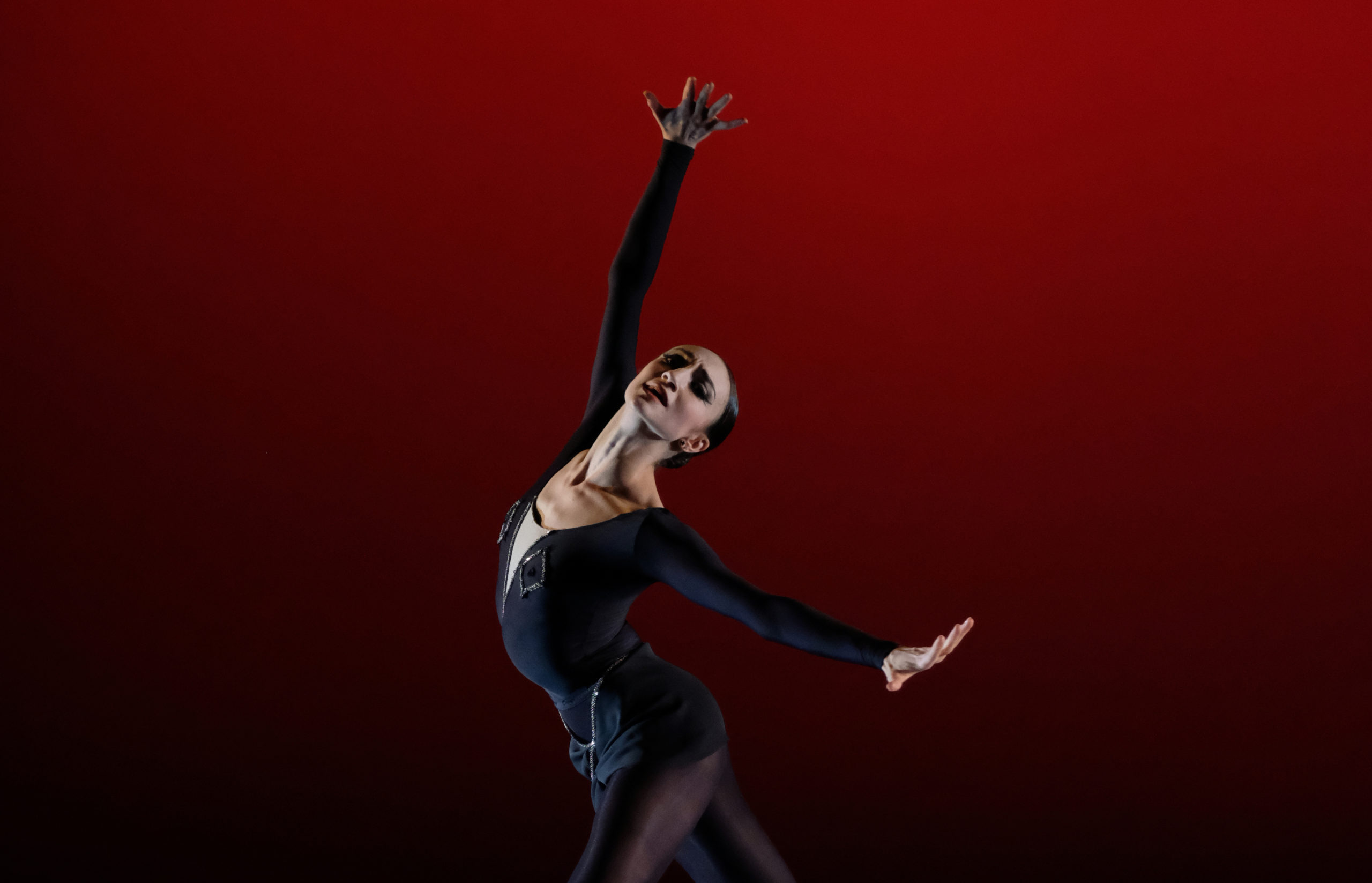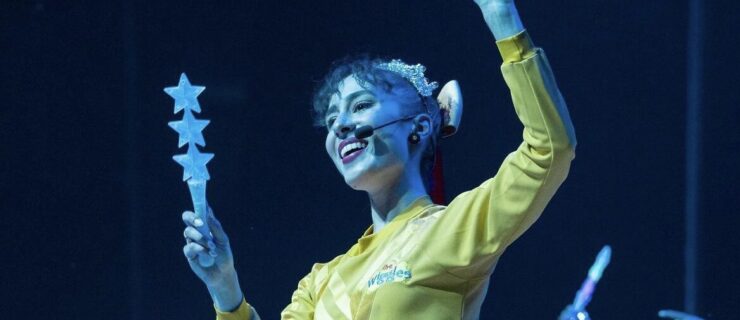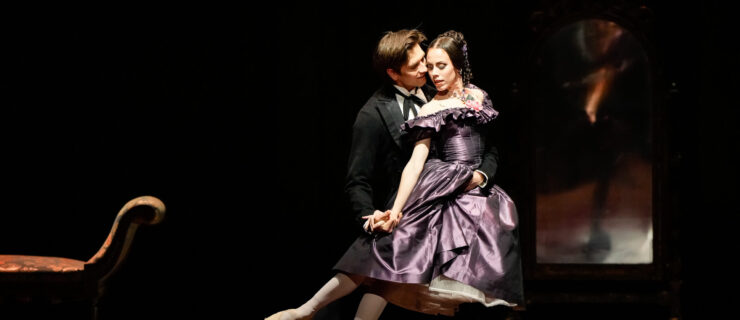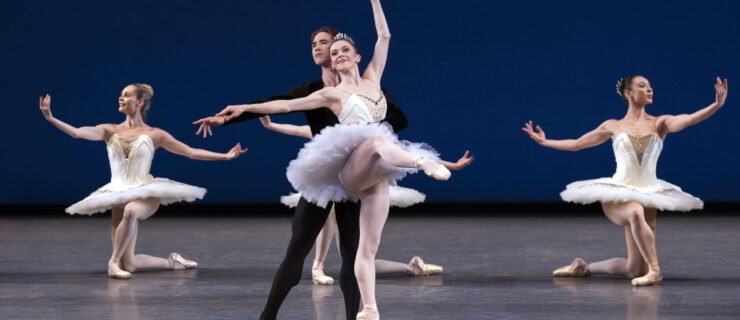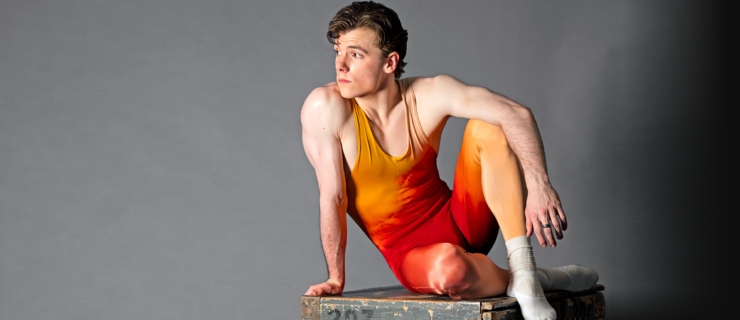After Being Stuck Stateside by the Pandemic, This American Dancer Hopes to Resume Her Career in Russia
In 2019, New York native Katia Raj had just begun her third year dancing with the Saint Petersburg State Academic Leonid Yacobson Ballet Theatre in St. Petersburg, Russia. That August, after developing a labral tear in her hip, Raj returned home to New York for medical treatment—but then got stuck there. Amid pandemic-related shutdowns and recent political tensions, travel across the Russian border has been extremely challenging. After two years of rehabilitation, lockdown and travel-related uncertainties, Raj is hoping to return to her career, friends and belongings in St. Petersburg this August.
In the meantime she has struggled with the stress of uncertainty, waiting for official updates that could help her plan her return. After working two and a half years in Russia, the country had become her home. “I don’t know if I will live in Russia forever, but I want to return at least long enough that I can leave feeling I experienced as much of its beauty as I could.”
Raj began dancing at age 4 at a doctor’s suggestion, because she walked extremely turned-in. “The doctor said I’d never be a ballerina, but at least I’d walk normally,” says Raj. As it turned out, she showed early promise and transitioned studios in her hometown of Elmira, New York, to work with Rafael Grigorian, who introduced her to Russian training. By age 14, she knew she wanted to be a dancer.
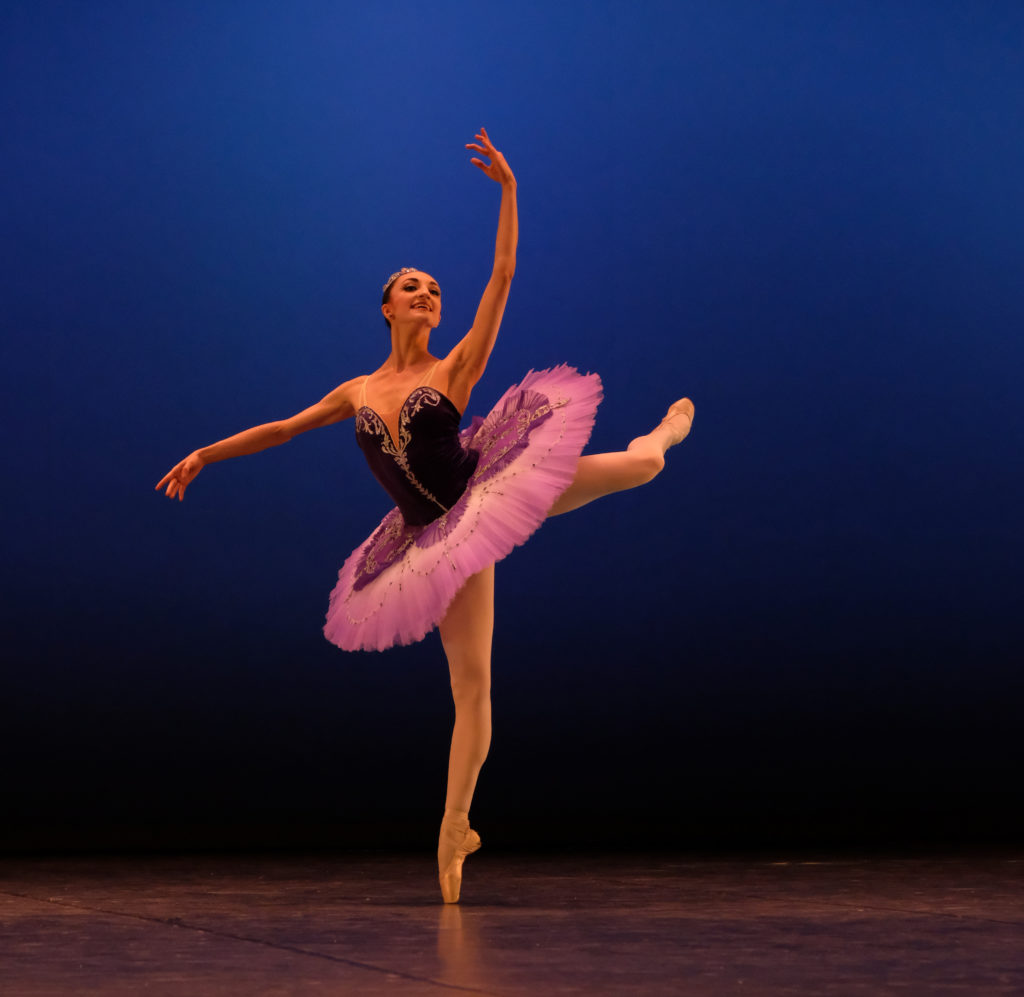
At 16, Raj accepted a scholarship to Kirov Academy of Ballet’s year-round program in Washington, DC, where she trained in the Vaganova method. While Raj was attending a summer intensive in Miami, a visiting instructor from Russia’s Vaganova Ballet Academy told the school’s director about her, and the director approached Raj with an invitation to attend the St. Petersburg school year-round. However, financial reasons prevented her from attending; instead, she furthered her training at the Gelsey Kirkland Academy of Classical Ballet in New York City, a decision she says changed her life: “I would not be the artist I am today without Gelsey.”
Raj spent two years at GKA before joining the company, Gelsey Kirkland Ballet, where she performed a variety of soloist and principal roles. She also worked with Ekaterina Shchelkanova and Anton Boytsov, co-founders of Open World Dance Foundation. It was Shchelkanova who suggested Raj seek employment in Russia, so she sent videos to companies in advance to secure audition spots. Raj, then 24, arrived in Moscow in 2017 with enough knowledge of the language to order a cup of coffee. She took her first open class abroad at the Bolshoi Theatre’s raked studios. “I had never danced on a rake before,” she says. “I don’t think I could do a passé, let alone a pirouette!” Yet despite the language barrier and adjustments to flooring, Raj landed a corps de ballet position with St. Petersburg’s Leonid Yacobsen Ballet Theatre after one month.
What followed was what Raj describes as one of the hardest but inspiring years of her life. Between tiring, six-day work weeks, her difficulties communicating and the struggle to blend into a corps de ballet full of Vaganova Ballet Academy graduates, Raj found solace in the chance to dance at the legendary Mariinsky Theatre. “I’ve danced 18 performances in 14 days without a day off, three acts in every single performance. I thought, How am I going to make it through this? But then you’d run out and be on the Mariinsky stage.”
By her second year, Raj had begun to establish herself, getting a grip on the language. When she fell on an icy street in April of 2018, severely bruising her hip, she didn’t realize she had also torn her labrum and continued dancing. During the company’s 2019 international tour, it began really bothering her, and upon her return to Russia she learned she had developed a serious injury. When she traveled home to New York later that August in search of medical treatment, she had every intention of returning to the company in April.
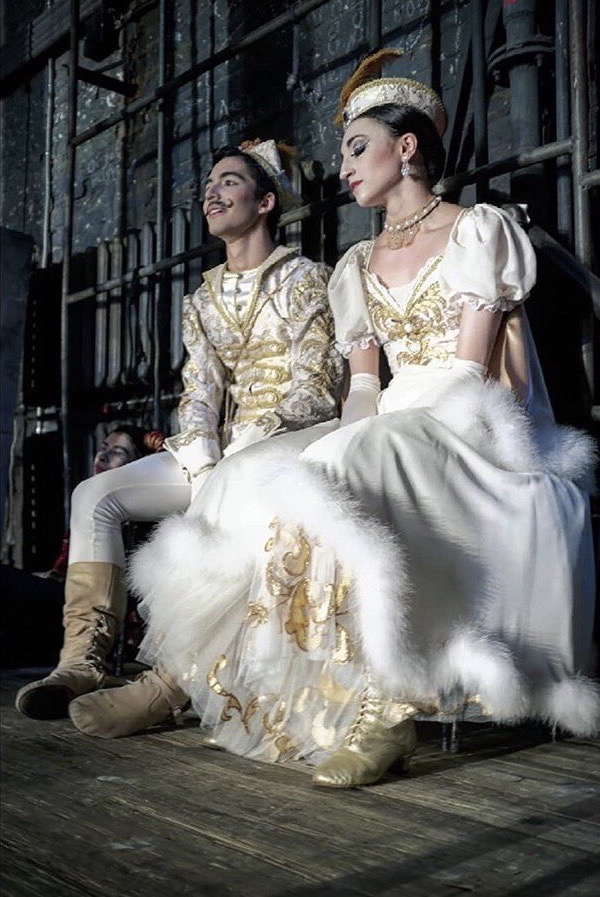
“Then COVID hit,” says Raj. In March of 2020, Russia closed its borders to most foreign citizens, including those with work visas. Raj was stuck, quite literally: “At the time, I was training with Ekaterina [Shchelkanova] in Florida.” Though Raj has secured other living arrangements in New York City since then, she is still living out of a suitcase. Her St. Petersburg apartment building, which has since been sold, held nearly all her belongings when she left—including her laptop. (Luckily, a friend was able to retrieve Raj’s things.)
“When I left Russia, I thought it would just be for a couple months,” she says, but rehabilitation and the pandemic lockdown extended that time by almost a year and a half. Moreover, the already-tense political relationship between the U.S. and Russia—given U.S.-imposed sanctions and Russia’s retaliatory expulsion of American diplomats—added to Raj’s worries. “There are politics, and then there are people’s lives,” she says. “It’s sad that they are so intertwined.” Finally, the U.S. Embassy and U.S. Consulates in Russia announced the reopening of the Russian border to U.S. citizens “under certain conditions” on July 6, despite the Department of State’s Level 4: Do Not Travel alert. Raj plans to return to St. Petersburg in August.
Though she is finally able to go back, she now worries about getting hired as a U.S. citizen, mostly due to work visa circumstances. “I left on good terms with my company with the expectation that I would be returning, but the pandemic has affected all companies. I am returning to Russia without expectations,” she says.
Still, Raj remains hopeful. “In the U.S., there are a lot of negative connotations toward Russia. But it’s a beautiful country full of beautiful people, color and culture. There are so many friends who have been wishing me well from afar. I can’t wait to go back and see them. I will probably cry!”
